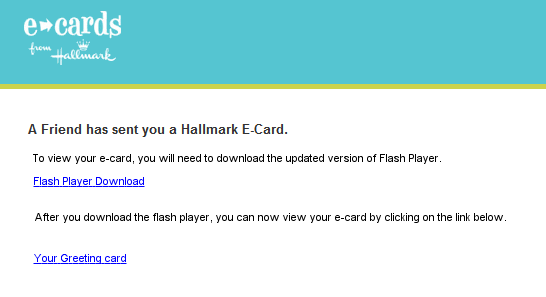Here’s how to avoid falling even in their best designed trap
Cyber criminals affected the online businesses and individuals since the internet networks first appeared and spread all over the world.Internet services and websites make it easy for us to pay bills, shop, make online reservations and even work. And you can do any of these actions from any place in the world. Old boundaries and human limitations were dropped, in order for us to have access to almost any information. Our lives became so much easier.
But the same thing is true for CRIME.
Our freedom to navigate and access a wide number of online locations represents in the same time a main vulnerability, because an open door always allows access in both directions.
Criminal minds can reach these days further than before, into our private lives, our homes and work offices. And there is little we can do about it.
Attack methods and tools vary from traditional attack vectors, which use malicious software and vulnerabilities present in almost all the programs and apps (even in the popular Windows operating systems), to ingenious phishing scams deployed from unexpected regions of the world, where justice can’t easily reach out to catch the eventual perpetrators.
The most common ways for you to become vulnerable to a malware attack or phishing scamtake place when you:
shop online
check your email
access social media networks
For this reason, we need to know what are the most popular schemes and techniques used by cyber criminals in order to obtain our private information and financial data.
We must not forget their final target is always our money and there is nothing they won’t do to accomplish their mission.
1. Phishing email scams

Phishing scams are based on communication made via email or on social networks. Cyber criminals will send you messages and try to trick you into giving them your login credentials – from your bank account, social network, work account, cloud storage or any other personal data that can prove to be valuable for them.
In order to do that, the phishing emails will seem to come from an official source – it can be bank authorities or other financial institutes, but also delivery companies or social networks representatives.
This way, they’ll persuade you to click on the links contained by their messages and access a website that looks legit, looks like the real one, but it’s actually controlled by them. You will be sent to a fake login access page that resembles the real website.
This way, if you’re not paying attention, you might end up giving your login credentials and other personal information.
In order for their success rate to grow, scammers create a sense of urgency. They’ll tell you a frightening story of how your bank account is under threat and how you really need to access as soon as possible a web page where your must insert your credentials in order to confirm your identity or your account.
Of course, the provided link will only lead you to the fake web location and not to the real login page.
After you fill in your online banking credentials, cyber criminals use them to breach your real bank account or to sell them on the dark web to other interested parties.
It’s one of the main scamming techniques used to spread financial and data stealing malware. There isn’t any reason why you shouldn’t be very well prepared for this attempt. However, even if you install a good antivirus program, there is no better way to stay safe from this threat but to avoid the initial infection phase.
2. The money laundering scam

This money laundering scam – also known as the Nigerian scam – is actually one of the oldest and most popular scamming schemes. Most of us already encountered it in our own email inbox, in one form or another.
Since it’s an old scam, it suffered multiple variations along the years.
The typical scam starts with an emotional email message. It can be from an official government member, a businessman or a member of a very wealthy family member (usually a woman) who asks you to provide help in retrieving a large sum of money from a bank, paying initially small fees for papers and legal matters. In exchange for your help, they promise you a very large sum of money.
Of course, this is just the beginning. Afterwards, they ask you to pay more and more for additional services, such as transactions or transfer costs. You even receive papers that are supposed to make you believe that it’s all for real. In the end, you are left broke and without any of the promised money.
There were also cases where not only money was lost in the scam, but people were kidnapped or even worse.
In this blog post we exposed more examples of scams carried on social media networks(tips on how to stay safe from them included).
3. Greeting card scams

This is another old scam: the greeting cards that you receive in your email inbox and seem to be coming from a friend.
If you open such an email and click on the card, you usually end up with malicious software that is being downloaded and installed on your operating system.
The malware may be an annoying program that will launch pop-ups with ads, unexpected windows all over the screen. However, it can also be ransomware or one of the worst financial malware that’s been around, part of the infamous Zeus family.
If your system becomes infected with such dangerous malware, you will become one of the bots which are part of a larger network of affected computers. In this unfortunate event, your computer will start sending private data and financial information to a fraudulent server controlled by IT criminals.
To keep yourself safe from identity theft and data breach, we recommend using a specialized security program against this type of dangers.
To find out more information about financial malware, read this article.
4. A guaranteed bank loan or credit card scam

Difficult times push people into getting trapped by “too good to be true” bank offers that guarantee you large amounts of money and have already been pre-approved by the bank.
If such an incredible pre-approved loan is offered to you, simply use your common sense to judge if it’s for real or not.
How is it possible for a bank to offer you such a large sum of money without even knowing your financial situation?
Though it may seem unlikely for people to get trapped by this scam, there’s still a big number of people who lost money by paying the “mandatory” processing fees required by the scammers.
Here are more tips and tricks from top security experts:

No comments:
Post a Comment